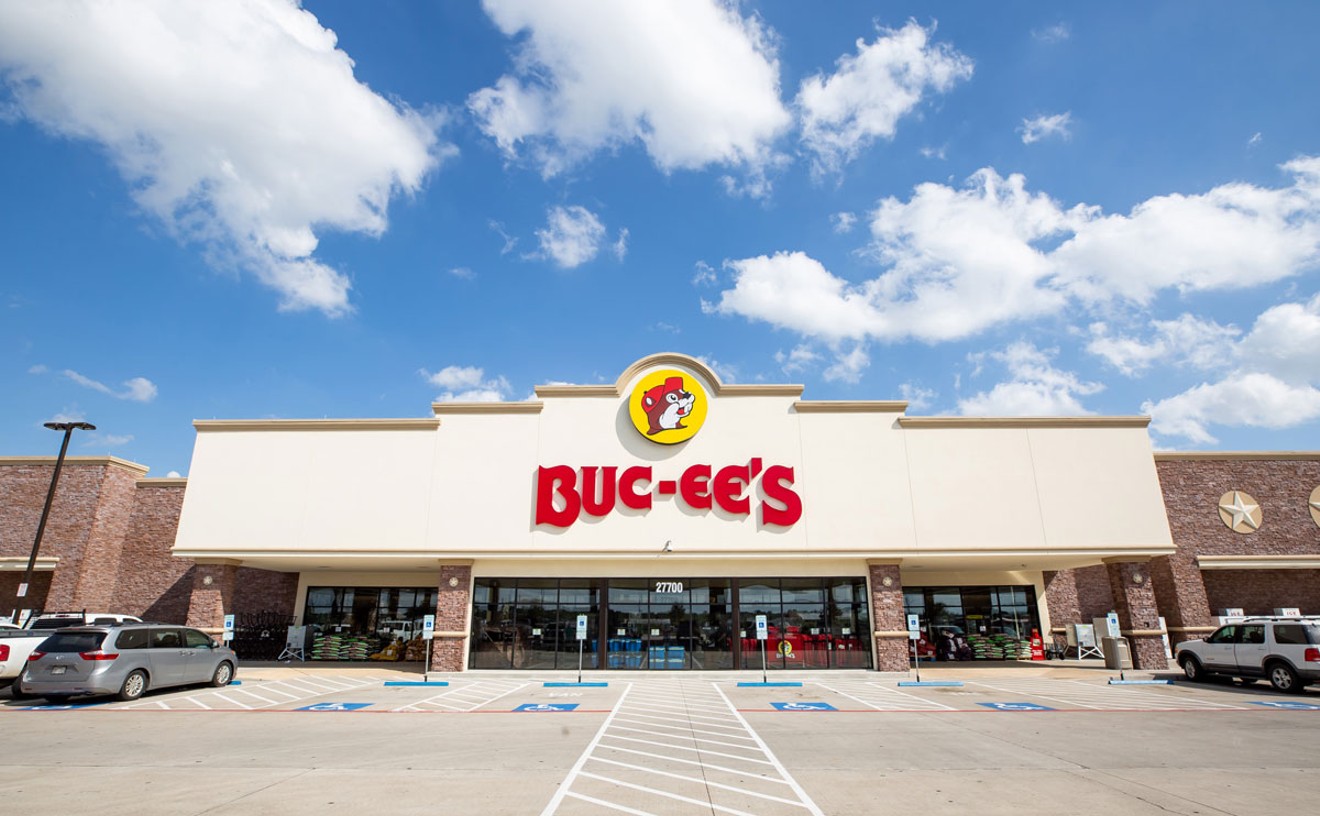Unless you're the sort of person who enjoys reading lengthy city ordinances about traffic and zoning, there's a lot about Dallas parking you may not understand. Here are answers to some frequently asked questions about Dallas parking and valet:
How is it legal for a valet company to charge people to park in spaces that are normally free public use?
If a business has been determined to have insufficient off-site parking, the business — not the valet company — is entitled to apply to the city to use public right-of-way parking for "valet maneuvering," aka pick-up and drop-off. The business pays the city for the use of those spaces, which should have signage indicating that they're meant for valet maneuvering.
How many public right-of-way spaces is a business allowed to block off for valet maneuvering?
"Normally the standard is about 66 feet of on-street space, which is about three parallel [spaces], to accomplish this task," says Pamè La Ashford, program manager with the Dallas Police Department's Parking Services & Enforcement. Most businesses use two or three spaces, Ashford says, although some businesses may have as many as seven.
Is a business allowed to use public right-of-way parking spaces to park valet cars?
No. "For a business to obtain an annual license from the city of Dallas to provide ongoing valet service, they must have a designated off-street parking location to store the vehicles they valet," Ashford says. When a business pays for the right to use public right-of-way spaces for valet, that space is to be used for valet pick-up and drop-off, not parking. "Vehicles need to be moved out of the maneuvering zone within about five minutes or the business is in violation," Ashford says. "Of course, there are unique circumstances that may be the cause of the violation, which the city has to take in account. Examples include unreasonable traffic flow on a narrow street in front of where the maneuvering zone is located, or individuals that self-park within a business’ maneuvering zone, preventing proper use of the zone."
Can I be towed for parking in a space blocked off by valet cones?
Yes. Public right-of-way spaces that a business has paid to use for valet maneuvering should have signage indicating that fact, Ashford says. "If the signs were in place, yes, we would tow them out because that vehicle is causing a negative impact on traffic." Why will you be towed? Because if a car is blocking a valet maneuvering space, that means the valet pick-up and drop-off may wind up moving into the street, which creates a traffic hazard. "If signage is missing or the location is awaiting installation, it is recommended that the business have their valet operator block off approved spaces at least two hours before service must begin to prevent a vehicle being in the area and causing a negative impact on traffic and the operation," Ashford says.
What if I park in that space before valet sets up for the day?
You could still be towed if you have not moved by the time valet service is to begin, which is why you should pay attention to the signs indicating a valet maneuvering spot.
What if a valet company is maneuvering valet cars in the street, parking valeted cars in the public right-of-way or taking up parking spaces that they shouldn't be?
Report it. "If the community believes a valet hired by a business is found violating the valet ordinance, they can notify parking services by submitting an appropriate service request for the city to investigate. The request should be submitted either at the time the violation is occurring or identify the time range and days the violation is witnessed so parking service can investigate the location at the appropriate time. If the location is found in violation, the business is issued a citation which is logged and eventually charged against their business certificate of occupancy. The fine is $250 per incident and would go against the valet companies and the business owner."
Should I tip the valet?
Absolutely. These drivers are often making around minimum wage or less, and their salary relies heavily on tips. When you use a valet service that costs money, that cash doesn't go to the person who actually parks your car. In fact, many valet drivers don't even get to keep all of your tip. Some people suggest tipping when you hand your keys over to the valet at the start of the night for extra attentive service. When conversations about Dallas valet get heated, people often say they're less likely to tip their driver if they're visiting a business where valet is compulsory, or if the price for valet is too high. That's just bad etiquette — your valet didn't set the price or make the rules; they just work there.
How much should I tip?
The standard range is $2 to $5. One dollar or less is considered tacky; more than $5 is generous but isn't a bad idea if your driver goes above and beyond, if you need them to retrieve something from your vehicle or if your car has a finicky ignition or requires an aerospace engineering degree to operate. Remember: Your valet driver is handling one of the most expensive possessions you own. It's better to keep on karma's good side.
Is complimentary valet really free?
Yes — but again, you should tip.
How do I know if a bar or restaurant offers complimentary valet?
Aside from asking the valet about pricing as you pull up, the best option is to call a bar or restaurant in advance and inquire about parking options. Some restaurants offer complimentary valet that is shared with other establishments, some offer a valet service that will cost money and others may suggest nearby street parking, metered parking or parking lots.
What other valet etiquette should I be aware of?
Having at least a little cash on hand is never a bad idea, whether it's to pay for the valet or the tip. If there's a line of cars ahead of you waiting to valet, stay in your car until the valet greets you and asks for the keys. If you're the sort of person who leaves moldy coffee cups and month-old Filet-O-Fish wrappers piled on every surface, for Pete's sake, tidy your car up if you know you'll have to valet. It should be common practice in all parking scenarios by now, but don't leave valuables in plain sight. And if you're given a valet slip, don't lose it — when things are busy, a lost valet slip can mean a longer wait time to retrieve your car. Many valet services now use a text message-based system that eliminates the need for valet slips and enables you to text the valet as you're headed toward the stand so your car can be ready when you arrive.
[
{
"name": "Air - MediumRectangle - Inline Content - Mobile Display Size",
"component": "18855504",
"insertPoint": "2",
"requiredCountToDisplay": "2"
},{
"name": "Editor Picks",
"component": "17105533",
"insertPoint": "4",
"requiredCountToDisplay": "1"
},{
"name": "Inline Links",
"component": "18349797",
"insertPoint": "8th",
"startingPoint": 8,
"requiredCountToDisplay": "7",
"maxInsertions": 25
},{
"name": "Air - MediumRectangle - Combo - Inline Content",
"component": "17105532",
"insertPoint": "8th",
"startingPoint": 8,
"requiredCountToDisplay": "7",
"maxInsertions": 25
},{
"name": "Inline Links",
"component": "18349797",
"insertPoint": "8th",
"startingPoint": 12,
"requiredCountToDisplay": "11",
"maxInsertions": 25
},{
"name": "Air - Leaderboard Tower - Combo - Inline Content",
"component": "17105535",
"insertPoint": "8th",
"startingPoint": 12,
"requiredCountToDisplay": "11",
"maxInsertions": 25
}
]











